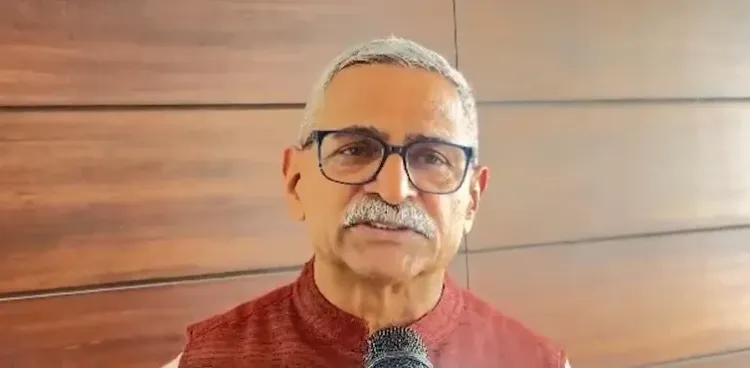Is the Objective to Eliminate Security Threat to Israel Achieved Following US Bombing of Iran?

Synopsis
Key Takeaways
- US airstrikes successfully targeted Iran's nuclear sites.
- India maintains a neutral stance, advocating for peace.
- Potential repercussions for global energy supplies are a major concern.
- Iran may retaliate, escalating regional tensions further.
- Diplomatic solutions are emphasized as the priority moving forward.
New Delhi, June 22 (NationPress) As tensions escalate in the Middle East following the recent US military assault on Iran's nuclear sites, Indian defense analysts assert that the primary objective of this action -- to mitigate the security threat posed to Israel -- has been successfully accomplished.
A few defense specialists shared their insights with IANS regarding the US bombardment of Iran and its potential ramifications for global oil and energy resources.
Retired Lieutenant General Sanjay Kulkarni expressed to IANS that the US airstrike was devastating and aimed specifically at crippling Iran's nuclear capabilities.
"The destructive capability exhibited by the United States in targeting three of Iran's nuclear facilities, particularly the Fordow site, utilizing B-52 bombers and 30,000-pound bunker-buster bombs, signifies a major military offensive. Reports indicate that between six to twelve such bombs were deployed, leading to the comprehensive destruction of the Fordow facility," he remarked.
"The mission was to dismantle Iran's nuclear infrastructure, thus alleviating the threat that Israel previously faced," he added.
Major General Dhruv C. Katoch (Retd.) highlighted to IANS that while India is not taking sides, it is gravely concerned about the potential fallout from ongoing hostilities.
"India has always advocated for peace. Although we do not oppose the United States, we aim to avert further escalations, as increased instability could disrupt vital shipping lanes like the Strait of Hormuz and the Red Sea, thereby influencing energy prices and impacting India's ambition to become a $30 trillion economy by 2047," he stated.
He noted that the US had issued warnings to Iran regarding the repercussions of continued provocations before proceeding with the attack.
"The United States had clearly indicated that if Iran did not cease its nuclear activities, it would target its reactors. Last night, they executed strikes on three nuclear sites with B-52 bombers and submarine-launched missiles, inflicting serious damage on Iran's nuclear facilities -- marking a significant escalation in tensions," Katoch explained.
He mentioned that Iran is unlikely to remain passive in light of these strikes.
"The Americans have clearly stated that they will not escalate further unless Iran responds. I believe Iran will feel compelled to react, likely targeting Israel, which has reportedly begun with strikes on Haifa Port," he asserted.
"Iran may also potentially target American interests, either directly or through proxy forces, within days. This could lead to another level of escalation. However, I am hopeful that in time, a peaceful resolution will emerge," he continued.
Reaffirming India's position, he emphasized that the country stands firmly for dialogue and peaceful solutions.
"India has consistently advocated for peace. I am confident that the forthcoming official statement from India will underscore this commitment -- supporting diplomacy over conflict. We are neither aligned with Iran nor Israel; we prioritize diplomatic and peaceful resolutions," Katoch concluded.






